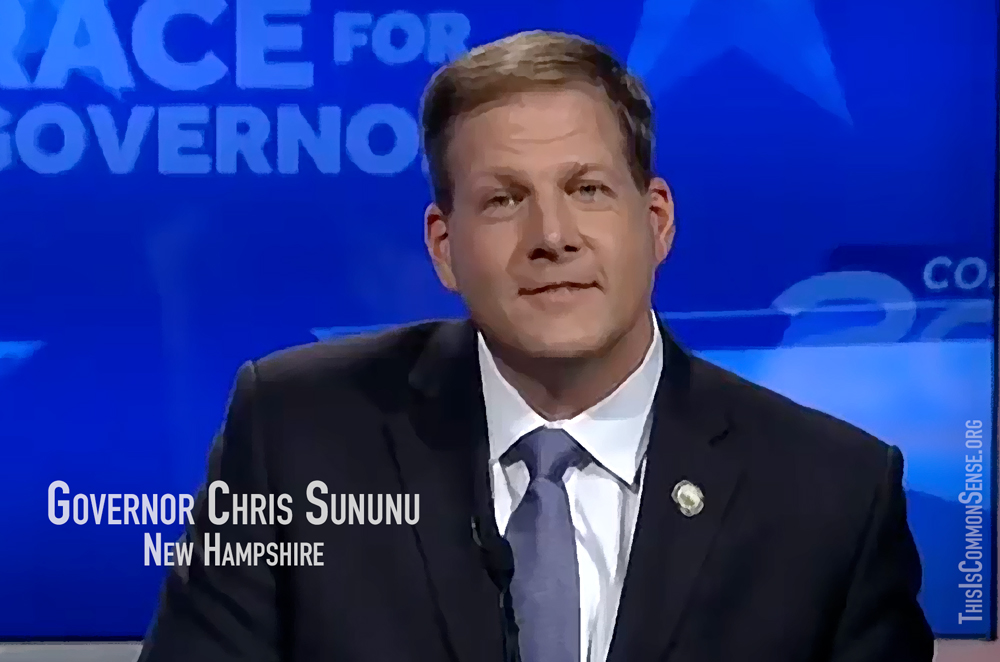“In the past two years,” the Cato Institute announced last January, “Governor [Chris] Sununu and the State of New Hampshire have topped Cato’s rankings for both our Fiscal Policy Report Card on America’s Governors and our recently released Freedom in the 50 States report.”
How? Why?
The governor points to “a long history of local control,” insisting that “town meetings matter.”
He also cites the state’s executive council which, along with the governor, publicly debates “every contract over $10,000,” as well as a two-year gubernatorial term that “sucks” for him but gives citizens “all the say.”
Most of all, consider the sheer size of New Hampshire’s House of Representatives.
“When you have one of the largest parliamentary bodies in the free world with 400 members representing only 1.4 million people,” Gov. Sununu explains, “by definition” it has to be “one of the most representative bodies of government in the world.”
He elaborates that “they only get paid a hundred bucks a year. I mean, it’s like herding cats. Don’t get me wrong, it has its ups and downs. But that’s one state representative for about every 3,000 people. Like town selectmen, your representative in Concord is going to be somebody you know, somebody you see at the grocery store, somebody you can easily reach and who can hear you. It’s very different from other states where you have one person representing a district with tens or hundreds of thousands of people.
“Which means the control is really at the individual level,” Sununu adds, and “an individual citizen has much more say on how their taxes are spent or what’s going on in their schools or whether that pothole is going to get filled or not.”
Sounds like citizens are more in charge.
This is Common Sense. I’m Paul Jacob.
—
See all recent commentary
(simplified and organized)
